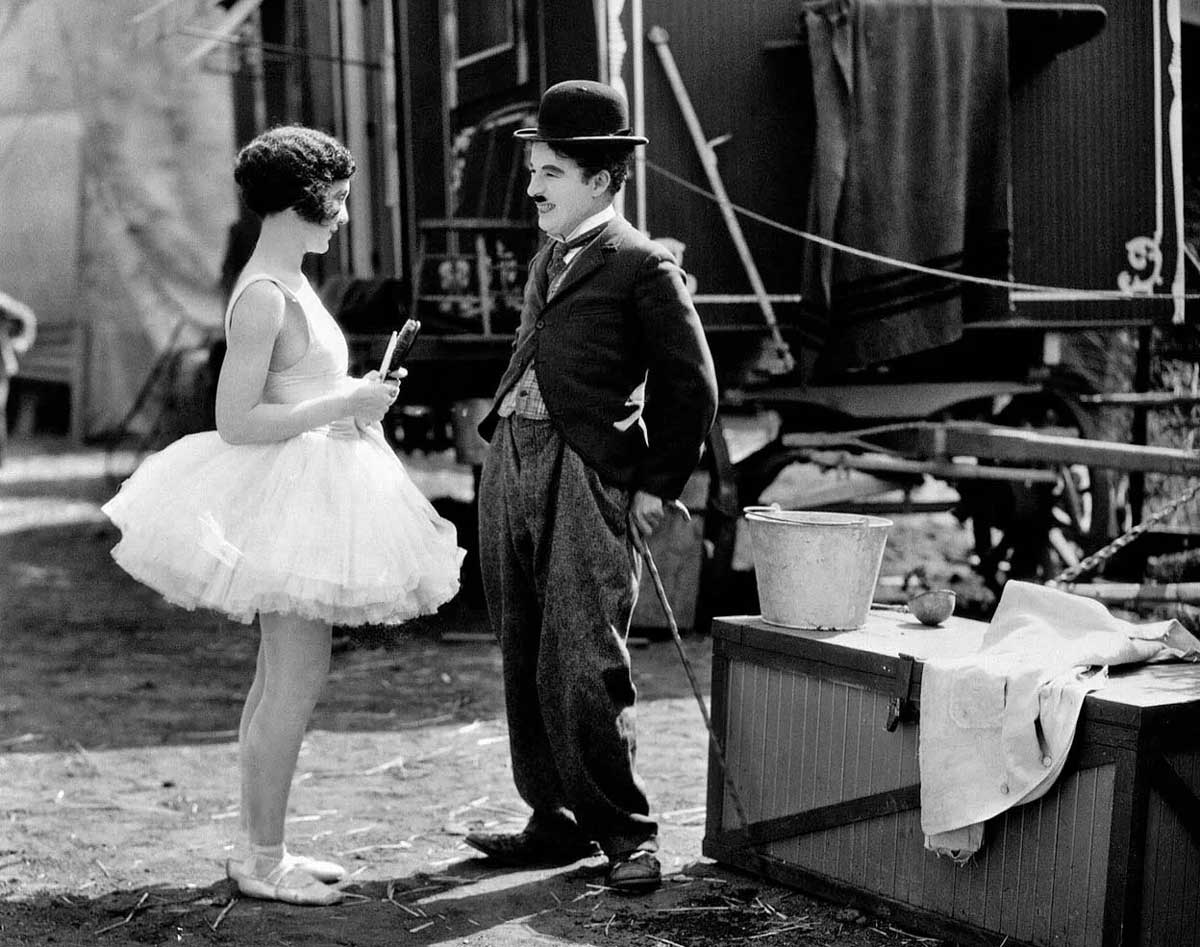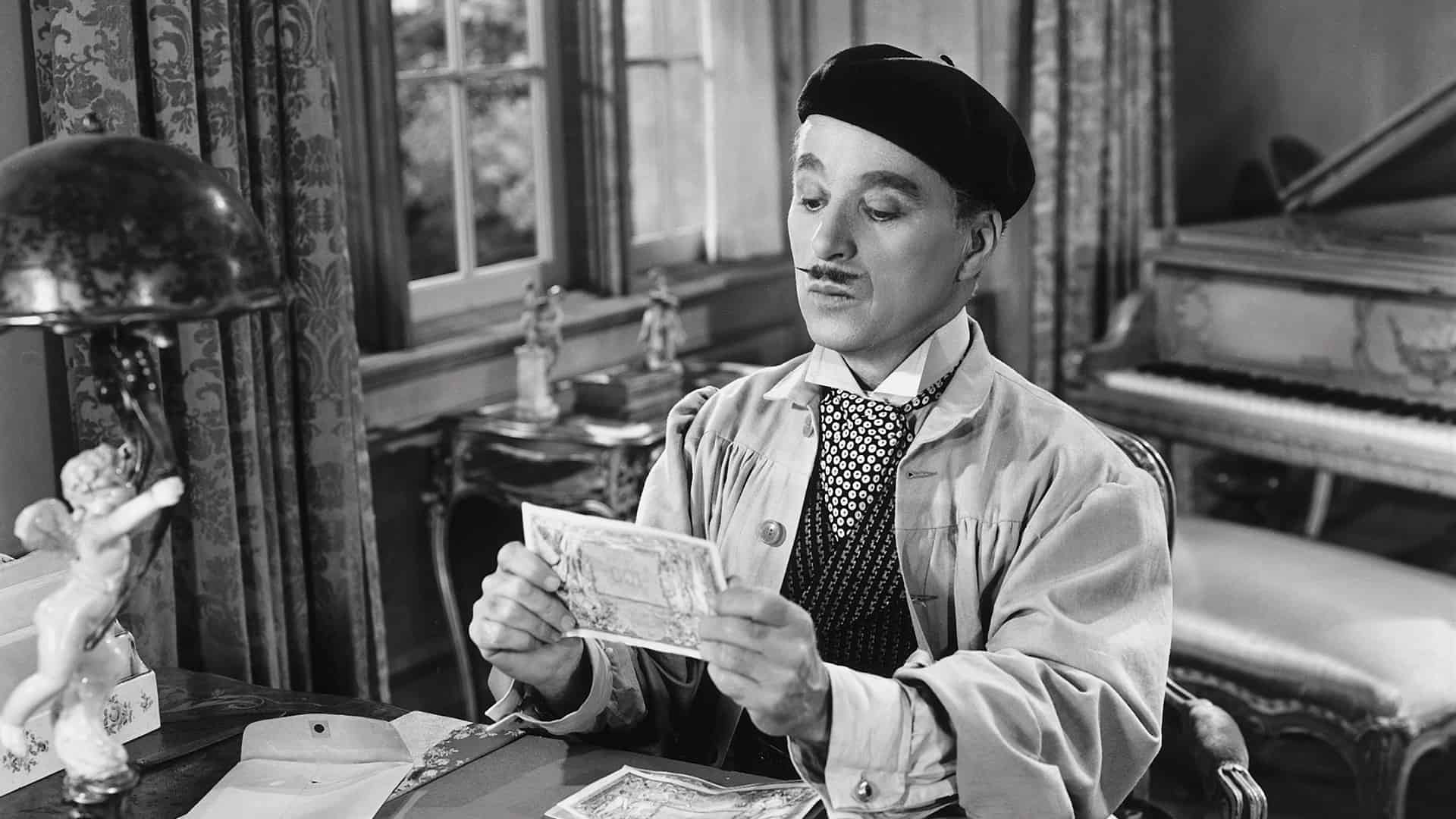Decorated by the French Government—The Hero of the Hour in Paris and Berlin His Face Served as a Passport—Met Pola Negri and Praises Her Beauty—Now Back in California Hard at Work
by Charles Chaplin
PARIS!
Yes, I am here again at last after ten years away. When I arrived the newspaper men asked me right off how I liked Paris. I replied that I had never seen so many Frenchmen.
I am a bit disappointed. My little cafe is gone. When I used to be at the Folies Bergere, there was this little place around the corner from the theater. Here I would take coffee after the performance. It is like losing an old friend—to come here and find it gone. But there have been compensations.
The polite acclaims of the French, their quiet but sincere “Vive Charlot!” I am not pursued by the crowds as in England. It is a contrast.
I came to Paris from London by boat. I did not return by boat, I assure you! Why should one go through the unpleasantness of a channel Crossing when one can fly?
I am absolutely incognito most of the time. I wish I could be many places at once. The “Spiritual Mayor” of Montmartre extended an invitation to visit him and his comrades. I was compelled to refuse.
But I spent some time with my good friend Dudley Field Malone, Waldo Francis and Georges Carpentier.
I went to Versailles with Georges and Sir Philip Sassoon. And I was honored by the decoration of the Beaux Arts in Paris. I appeared also at the first public performance in France of my film, The Kid. Outside of that, I have been resting.
Then I flew over to England to spend several days at Sir Phillip’s estate at Luympe and also enjoyed a week-end with H. G. Wells. He is a man I have always wanted to meet. His “Outline of History” and his other great books have interested me tremendously. Wells and I, at his country home, spent a splendid few days together. He is a great man indeed. His latest work, “The History of Mr. Polly,” is one of his best. Someday I am going to do it in pictures.
In England I was to have met the Prime Minister, Mr. Lloyd George, but was delayed by fog at the channel and it was my misfortune. I am told that he sent for some of my films while he was in Scotland, recuperating. That is most gratifying. James Barrie, Thomas Burke, Rebecca West and E. V. Lucas were others of the notables with whom I became acquainted while in London.
I am impressed with the celebrities I have met. They are, most of them, supremely simple. No matter what great works of art they may have produced, they are as sincerely charming as if they had never written a book, painted a picture. performed a great play, or executed an exquisite bit of statesmanship.
In my hotel in Paris, was interviewed by a great many writers. One of the most interesting of them was Cami, very well known in France. and a contributor to America’s Vanity Fair. I met him in the foyer. We began to talk. People came and crowded about us. So I took his arm—Cami’s—and steered him into the elevator. We rode up and down, up and down, until we had finished our conversation.
The hotel staff seemed a bit astonished when one evening at the bar I called for a glass of Vittel water.
While I was talking to the newspaper people, a startled and red-headed young man burst in. I had never seen him before in my life. Evidently he had seen me. He rushed up, grasped both my hands, pumped them, and rattled off in broken English, as if he had memorized it, “My dear Charlot—is it really you? I am so glad to see you. We have been waiting so long for you. Now I do hope you will like Paris. Paris is such a wonderful city, you know. And, dear Charlie, you must visit our shows. But you look so funny, Charlot. Where is your mustache? And where is your hat? And how long are you going to stay in Paris? And where do you go now, my dear Charles? You must be so tired.”
The others collapsed. I had difficulty in suppressing my own laughter, until I realized how very well meant was this outburst. It was impossible to be amused by it. Instead, it touched me.
I visited the Quartier Latin. (Since we are in France, we must not call it the Latin Quarter!) I wanted to see it, but I was frankly afraid of the “intellectuals.” I went, and I didn’t get near enough to the intellectuals to be afraid of them.
I am reminded suddenly of an incident in London. You remember last month I told you about the little restaurant noted for the excellence of its stewed eels? Well, I went there one night and had four helpings. The news that I had been there got about and some imaginative person said that as stewed eels evidently were a gastronomic obsession with me, I would surely be there the following evening. I didn’t come—but others did, so that the restaurant was popular and the bobbies busy! I didn’t know about it until later. If I had known it would have been a great temptation to go again!
I left Paris to go to Germany. I came back to Paris.
I made up my mind quite abruptly to go into Germany and spend several days in Berlin. It never entered my head that there might be passport difficulties. There weren’t. The Belgian inspector who looked at my passport as we came into Germany sent it back to me in the train with this message: “I see your face and I know it. You may go.”
I was not recognized in Berlin. Not for a day. At the Adlon Hotel they did not know me at all. This was a great relief. I do not mean that I am ungrateful for the splendid receptions that have been given me everywhere. I mean I was glad, for a day or two, to be simply myself, to see Berlin without being seen. They have had only one of my pictures there, The Rink, a very old one. It was playing the week I arrived.
The evening of my arrival, I went to the leading restaurant, the “smart” cafe of Berlin. I did not dress. I had been browsing about all day, and did not go back to my hotel. I was motioned unceremoniously to the farthest corner, and the tiniest table, of the big dining-room. It was a beautiful place, and there were many beautiful women and well-dressed men there. I couldn’t see much from my table, but I meekly sat there, and I enjoyed myself hugely.
I was passing out as unceremoniously as I came, when a man from one of the good tables, rushed up to me. It was Al Kaufman, Paramount’s European representative. He brought me to his table. There sat Pola Negri and Mrs. Kaufman.
She is a delightful person. Young, vivacious, beautiful. She speaks no English—she is Polish. you know, not German, even though she has played in the German pictures, Passion and Gypsy Blood—and we became good friends. I dined with the same party every one of the three nights I spent in Berlin. Negri is coming to America in January to make pictures in California. She will be a revelation.
I also met Ernst Lubitsch, the German director of Deception and Passion and Gypsy Blood. He does not speak English; nothing but German— so we did not have many conversations.
I have picked up many ideas for future pictures. The “serious” photoplay I am going to do someday will not be entirely tragic. It will have humor in it, just as The Kid did. Because of the picture pirates—who grab ideas of others and use them—I cannot tell you what it is going to be about, but it will be in seven or eight reels. I am going to start a new picture as soon as I return to California. This will be the seventh of my eight short reel pictures and the last will follow as soon as this one is completed.
I am going back to America as hastily as I left it. Somehow I do things that way. I made up my mind in Hollywood that I was going around the world. I left twenty-four hours after I made my decision. I fully intended to visit other countries besides England and France. But I’ve got to get back to work. I’m happiest when I am working, even though it seems to me mine is the hardest work in the world. All the while I was traveling, I was thinking about my next pictures. Besides, the trip has been a rather strenuous one, and I don’t want to see all the world at once. I want to save some of it for another time!
There is a call from you, my audiences, always in my ears. Sometimes I do not hear it so plainly. But it is always there. It brings to me a restless spirit; almost a melancholy one. After all, I am only a servant of the public. I owe you much. And now it is up to me to make some of the best pictures I have ever made, so that I may hear your applause.
Photoplay Magazine, January 1922


